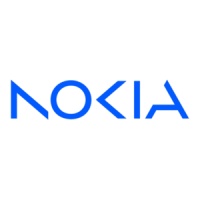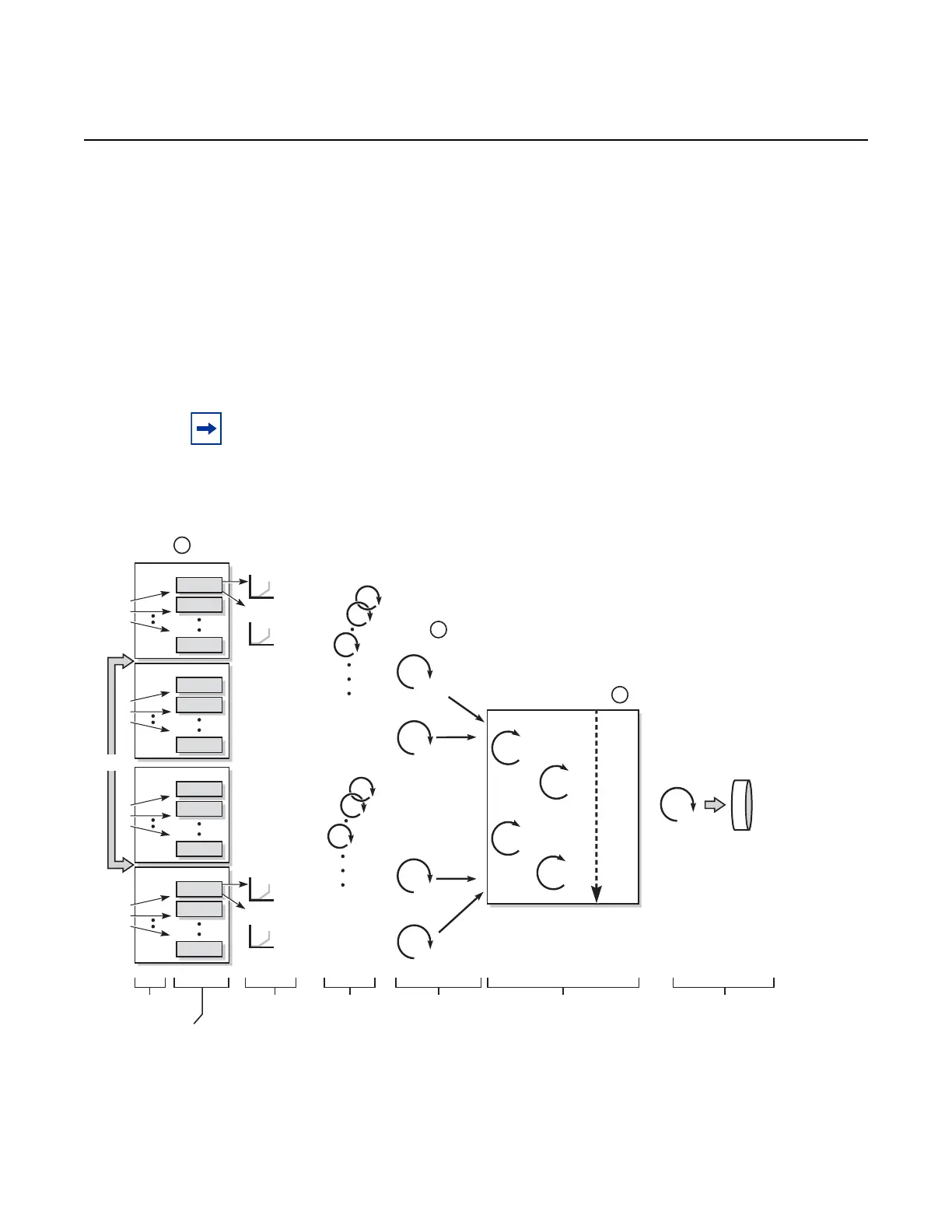Quality of Service Guide QoS and QoS Policies
Edition: 01 3HE 11014 AAAC TQZZA 63
Figure 13 shows 4-priority scheduling for Gen-3 hardware at network egress.
Queue-level CIR and PIR values and the queue type are determined at queuing and
provide the scheduling priority for a given flow across all shapers towards the egress
port (#1 in Figure 13). At the per-VLAN aggregate level (#2), only a single rate—the
total aggregate rate (PIR)—can be configured; CIR configuration is not supported at
the per-VLAN aggregate-shaper level for network egress traffic. All VLANs are
aggregated and scheduled by a 4-priority aggregate scheduler (#3). The flow is then
fed to the port shaper and processed at the egress rate. In case of congestion, the
port shaper provides backpressure, resulting in the buffering of traffic by individual
FC queues until the congested state ends.
Figure 13 4-Priority Scheduling at Network Egress (Gen-3 Hardware) on a Network Port
Note: The behavior of 4-priority scheduling for network egress traffic through a network port
differs from the behavior for network egress traffic through a hybrid port. Figure 13 and
Figure 14 show the differences.
CoS-1
Buffer Mgmt
via WRED
or Tail Drop
for Hi and Low
Prio
Per-Queue
Dual Rate
Shaper
4-Priority
Scheduling
Per VLAN
Shapers
Classification
nc
VLAN
h1
be
CoS-1
CoS-7
nc
VLAN
h1
be
Exp
In-Prof
BE
In-Prof
Exp
Out-Prof
BE
Out-Prof
Strict
Priority
Rate
Port Shaper
(Egress Rate)
per
VLAN
Rate
per
VLAN
Rate
Hi_prio
Lo_prio
CoS-8
CoS-8
CoS-1
CoS-7
nc
VLAN
h1
be
CoS-1
CoS-7
nc
VLAN
h1
be
per
VLAN
Rate
per
VLAN
Rate
Hi_prio
Lo_prio
CoS-8
24775
Fabric
Ethernet
port
CoS-8
CoS-7
1
2
3
NW Egress
Per Forwarding
Class Queuing

